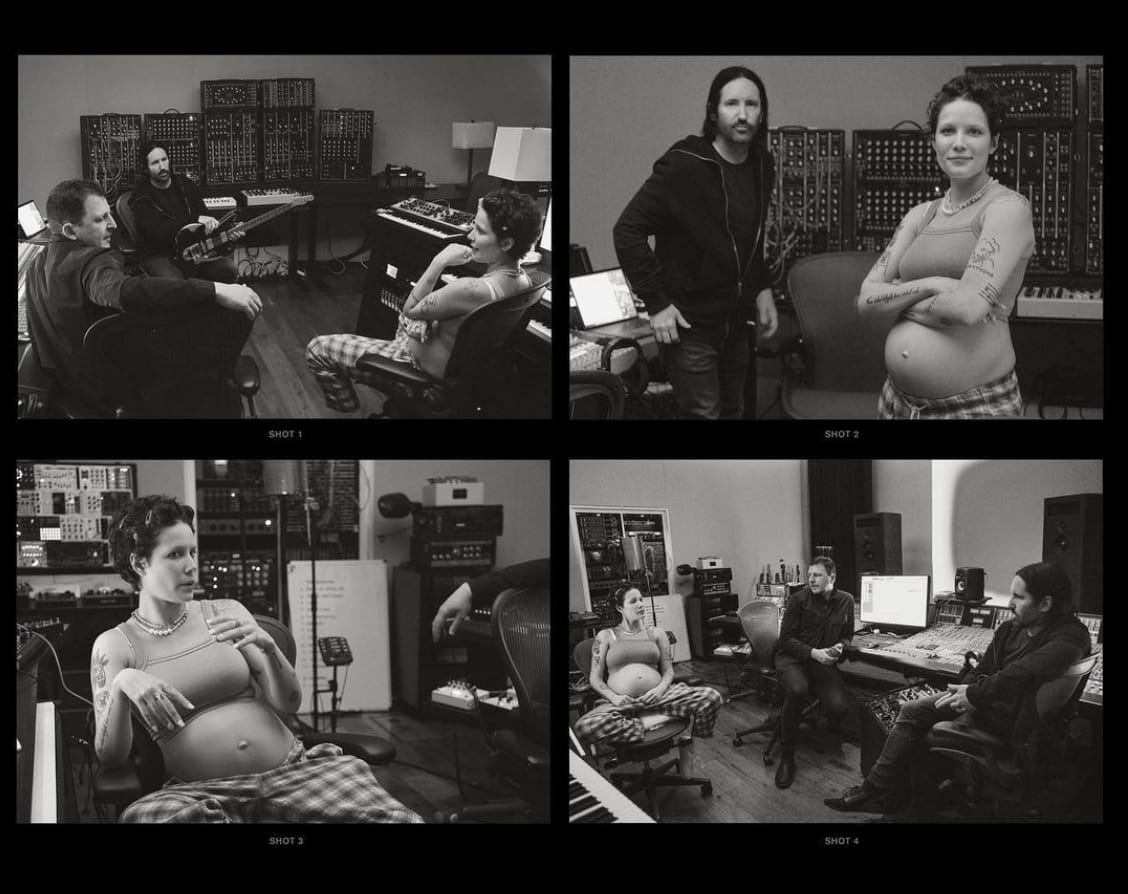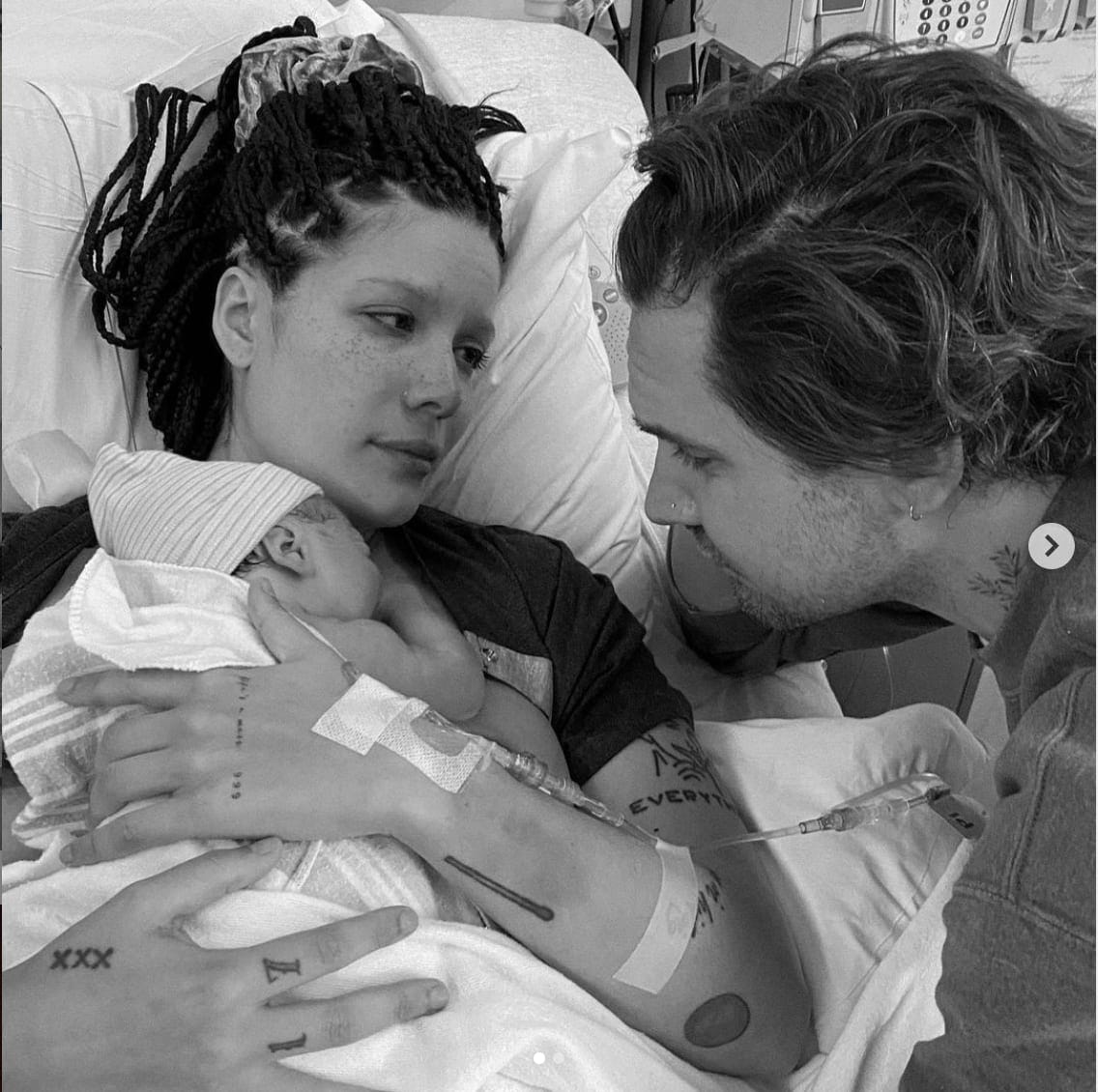REVIEW: All hail electropop rock God, Halsey
Halsey has upped the ante on her musical career with the release of her fourth studio album, If I Can’t Have Love, I Want Power.

By EMMA KELLAWAY
Album: If I Can't Have Love, I Want Power
Performers: Halsey
Rating: ★★★★★
Halsey has upped the ante on her musical career with the release of her fourth studio album, If I Can’t Have Love, I Want Power (IICHLIWP), which sees her shift further away from her throne as alternative-pop queen to take on a new role as industrial-rock god.
Her 2020 album Manic had set the stage for a move away from radio-centric pop style to cement a new path that has led listeners to a moment they didn’t know they’d been waiting for in the release of IICHLIWP.
The new album is unlike anything we've heard from Halsey before, with the artist singing solo on all 13 tracks, and starring in the accompanying film of the same name.
Having given birth to her first child in July 2021, this album is a concept album about the “joys and horrors of pregnancy and childbirth”.
The album takes a deep dive into the stigmatised dichotomy of female sexuality and childbearing, the insecurities of becoming a mother, with the distinguished self-destructive melancholy vibe we all know and love from Halsey.

It starts by setting a Draconian tone with its opening track The Tradition, which kicks off with an easing piano riff only to build into a full blown anthem of the ages which drags down the patriarchy.
This can be seen in the lyrics “take what you want, take what you can, take what you please, don't give a damn, ask for forgiveness, never permission” and then “they said that boys were boys but they were wrong”.
This is followed by Bells in Santa Fe, a softer piece that builds with emotion and strength to set the tone of the album as a raw, emotive, empowering journey.
The rock influence of enlisted production company Nine Inch Nails is prominent on the tracks Easier than Lying and You Asked For This, which are overlaid by all-out drum solos and screeching guitar riffs.
Halsey took to social media to thank Nine Inch Nails producers Trent Renzor and Atticus Ross for lending their “genius talent”.
“They saw a festering crack in my armour and forced it open from miles away. This is the album I have always wanted to make, but never believed I was cool enough,” Halsey said.

Halsey’s familiar sound from tracks such as Coming Down on her 2015 album Badlands and Bad at Love on her 2017 album Hopeless Fountain Kingdom has not been completely abandoned.
IICHLIWP serves up tracks like Honey and I am Not a Woman I’m a God, satiating listeners with their more familiar sassy, witty, tongue-in-cheek tone.
The album also takes on a deeper meaning as Halsey explores what it’s like being a sexual being during pregnancy on the track Girl is a Gun, which sings about showing a man how to touch a woman’s ‘trigger’.
Meanwhile, the whims of depth and despair heard on Manic are not spared in this album with tracks 1121 and Whispers delving deep into the crux of a self-deprecating inner-monologue.
With the line “sabotage the things you love the most, camouflage so you can feed the lie that you’re composed” Halsey bears all vulnerability while exploring the self-doubt that comes with becoming a mother.

Throughout all the soul defying ups and downs there is a sweet tone that comes through on softer songs such as Darling that tribute the love found with their newborn child.
The second last song and longest track on the album, The Lighthouse, drives this home with the resounding message of letting lost love go to make way for a new life.
This essence bleeds perfectly into the final track Ya’aburnee which translates from Arabic to “you bury me”.
Ya’aburnee is a poem with no chorus or distinguishable verses providing a pure monologue that finalises the overarching theme of childbirth bringing an abundance of life and love.
Ultimately this album amplifies all of the good qualities Halsey has shown us over the years – her genius songwriting abilities, genre-fluid adaptability, and talent to express raw emotions through song – leaving a masterpiece that feels like the purest form of Halsey’s art.
Fans new and old will relish in Halsey’s new era that incites a turmoil of emotions with an overarching feeling that no matter how messed up things may feel, everything will be ok in the end.





